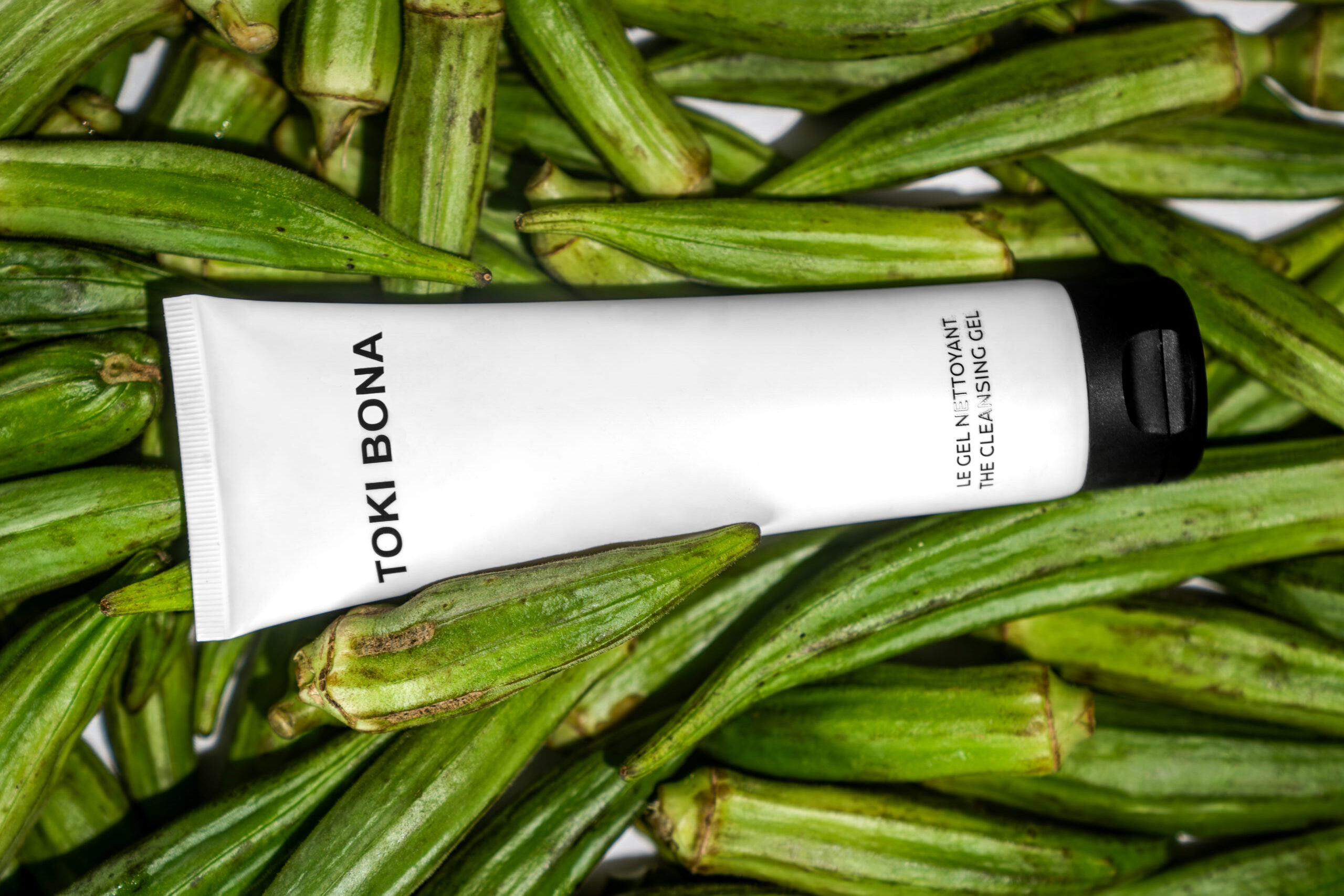
Okra: A Natural Ingredient with Proven Benefits
At TOKI BONA, we shine a spotlight on Africa’s botanical treasures to create skincare solutions that are both effective and skin-friendly. Okra, or Abelmoschus esculentus, is one of our star ingredients, celebrated for its numerous benefits supported by scientific research.
Why Is Okra So Exceptional for Your Skin?
Native to Sub-Saharan Africa, okra is packed with bioactive compounds that work together to enhance the skin.
- Natural Hydration
The mucilage, a unique polysaccharide found in okra, acts as a powerful humectant, capturing and retaining moisture in the skin. - Antioxidant Protection
Rich in polyphenols and flavonoids, okra protects skin cells from free radicals, which are responsible for premature aging. - Soothing and Repairing
Flavonoids like quercetin help reduce redness and irritation, leaving the skin calm and comfortable. - Glow and Even Skin Tone
Its high concentration of vitamin C boosts collagen production and reduces dark spots, leaving the complexion radiant. - Gentle Purification
The natural fibers in okra gently cleanse impurities while maintaining the balance of the skin’s microbiome.
Okra at TOKI BONA: More Than Just an Ingredient
At TOKI BONA, we’ve infused okra into our formulations to deliver exceptional benefits:
- Intense Hydration: Suitable for all skin types.
- Long-Lasting Protection: Shields the skin from environmental stressors like pollution.
- Instant Soothing: Perfect for sensitive skin.
- Gentle Cleansing: Respects the skin’s natural barrier.
A Commitment to Ethics and Sustainability
The okra we use is sustainably sourced from Senegal, cultivated with care by local communities.
Discover Our Okra-Infused face cleanser
Give your skin the benefits of a natural ingredient with scientifically proven properties. At TOKI BONA, every product is designed to deliver visible results while honoring Africa’s rich botanical heritage.
Your skin deserves the best of nature and science !
Sources :
- Addis Ababa University, 2015
- Journal of Medicinal Plants Research, 2011
- Journal of Ethnopharmacology, 2017
- Dermatology Research and Practice, 2018
- University of Lagos, 2016

